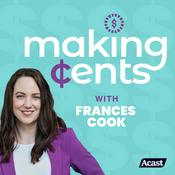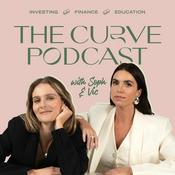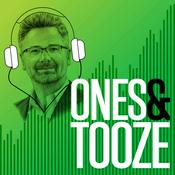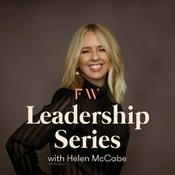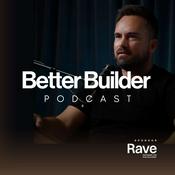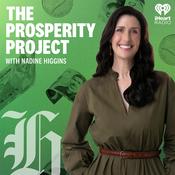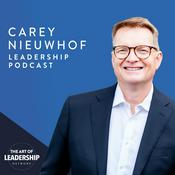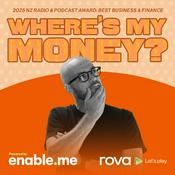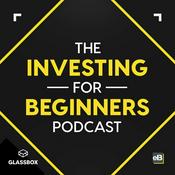734 episodes
- #689: Most people think forgetting a name means their brain is failing.
Dr. Majid Fotuhi, a neurologist who taught at Johns Hopkins and Harvard, sees thousands of patients convinced they have Alzheimer's – only to discover they're dealing with poor sleep or stress.
Dr. Fotuhi joins us to break down the difference between cognitive decline, dementia and Alzheimer's disease. He explains why chronic stress physically shrinks your hippocampus — the thumb-sized memory center in your brain — and how twelve weeks of lifestyle changes reversed cognitive decline in 84 percent of his patients.
We talk about the five hidden taxes draining your brain: sedentary lifestyle, poor sleep, junk food, chronic stress and mental laziness. Scrolling social media after work counts as mental laziness, even if your day job involves intense focus.
Dr. Fotuhi offers a different framework: five pillars that compound over time. Exercise ranks first because it multiplies mitochondria in your brain cells, reduces inflammation and generates new neurons in your hippocampus. Walking 10,000 steps daily cuts Alzheimer's risk by 50 percent.
Sleep comes second. Your brain rinses itself during deep sleep, flushing out amyloid — the core protein in Alzheimer's disease. One night of poor sleep increases amyloid in your brain.
We cover nutrition (skip the junk food debate), mindset (heart rate variability breathing reduces Alzheimer's footprints) and brain training. Dr. Fotuhi memorizes 70 names in a single lecture and explains his technique for remembering credit card numbers using mental imagery.
The conversation covers London taxi drivers who grew their hippocampus by memorizing 10,000 streets, why stress management beats supplements, and how Swedish students learning Arabic increased their brain volume in three months.
Timestamps:
Note: Timestamps will vary on individual listening devices based on dynamic advertising segments. The provided timestamps are approximate and may be several minutes off due to changing ad lengths.
(00:00) Defining cognitive decline, dementia and Alzheimer's disease
(05:19) Why cognitive issues don't always mean Alzheimer's
(07:24) Thinking of your brain as an asset to manage
(07:51) The five hidden taxes draining your brain
(10:45) How poor sleep prevents brain rinsing and causes inflammation
(14:20) Oral health and brain health connection
(16:40) Brain plasticity and the Broca lobe
(27:02) The five pillars of brain health
(35:23) Cardiovascular fitness versus strength training for brain health
(38:51) Sleep as the second pillar of brain health
(48:05) When exercise beats sleep
(51:33) Different types of intelligence beyond IQ tests
(1:03:53) Reversing brain damage from decades of bad habits
(1:10:25) Nutrition and avoiding junk food
(1:25:09) Mindset and stress management as pillar four
(1:33:35) Breathing exercises for stress reduction
(1:39:24) Brain training as the fifth pillar
(1:51:52) Memory techniques for names and numbers
(2:02:46) Nootropics and supplements for brain health
Share this episode with a friend, colleagues, your that person whose name you can't remember: https://affordanything.com/episode689
Learn more about your ad choices. Visit podcastchoices.com/adchoices - #688: Anonymous: "Anonymous Sheryl" is 38, mortgage-free and exhausted after 15 years of teaching. She’s torn between pushing a few more years toward FIRE or switching to relief teaching now for better work-life balance. How do you trade speed to FIRE for sustainability without blowing up the plan?
Anonymous : "Anonymous Ray" hired a bank portfolio manager but isn’t sure how to judge the results after just a few years. With mixed performance, dividend-heavy funds and higher fees, when is it fair to evaluate a manager — and would a simple index ETF outperform?
Nathan: Nathan’s 14-year-old just earned his first W-2 income, and Nathan wants to jump-start his son’s investing journey with a Roth IRA. But with household income above the Roth limits, is there a legal way to make this work without sacrificing the child tax credit?
Share this episode with a friend, colleagues, your substitute school teacher: https://affordanything.com/episode688
Learn more about your ad choices. Visit podcastchoices.com/adchoices - #687: Your tax refund might be $300 to $1,000 bigger this year, and that's just the beginning of what's changing with your money.
The Tax Foundation estimates most Americans will see significantly larger refunds thanks to seven major tax cuts. The child tax credit increased by $200. The standard deduction jumped by $750 for individuals or $1,500 for couples. The state and local tax deduction cap now sits at $40,000. Seniors get an extra $6,000 deduction, and deductions for auto loan interest, tips, and overtime work all increased.
Retirement accounts saw major changes too. Catch-up contributions for high earners now must go into Roth accounts, which pushed thousands of employers to add Roth options to their 401k plans between 2024 and 2026.
Kevin Warsh, the new Fed chair nominee, thinks the Federal Reserve has been doing it all wrong. The former Fed governor and Wall Street banker believes the Fed focuses too much on backward-looking data and reacts too slowly. He wants strategic, forward-thinking policy instead of chasing lagging indicators. President Trump clarified he never asked Warsh to lower interest rates and wanted to "keep it pure."
The labor market shows serious cracks. Job openings dropped by nearly one million year over year to 6.5 million. Unemployment claims jumped to 231,000 last week. January layoffs hit 108,435 people — up 118 percent from last year and the worst January since 2009 during the Great Recession.
Big Tech continues its massive AI spending spree. Microsoft, Amazon, Google, Meta, and Oracle will collectively spend over $500 billion on AI infrastructure this year. Google's spending alone doubled from 2025, reaching up to $185 billion focused on data centers and Gemini development.
Share this episode with a friend, colleagues, and your tax preparer: https://affordanything.com/episode687
Learn more about your ad choices. Visit podcastchoices.com/adchoices - #686: Rachel: Rachel is new to investing and has noticed the stock market being dominated by AI companies. She wants to make sure her portfolio is balanced without overexposing herself.Should she rethink her index fund strategy to protect against a potential AI bubble?
Sarah: Sarah just turned 65, owns her home outright, and has been relying on credit cards since losing her job last year. She’s weighing whether to claim Social Security now, pay off debt, remodel her home, or convert her traditional IRA to a Roth.How should she prioritize these major financial moves while balancing income, debt, and retirement accounts?
Anonymous “Julie”: This listener is on COBRA after her spouse took a federal buyout and is exploring starting a small business with her two young kids to teach them entrepreneurship.Will employer-provided health insurance fade away, and how can she test business ideas before fully committing?
Resources Mentioned:
Books:
So Good They Can't Ignore You by Cal Newport
The E-Myth by Michael Gerber
Traction by Gino Wickman
The Lean Startup by Eric Ries
Learn more about your ad choices. Visit podcastchoices.com/adchoices 10 Rules for Building a Portfolio That Actually Works for Your Life, with Cullen Roche
31/1/2026 | 1h 35 mins.#685: You're not an investor. You're a saver.
That's the first of 10 principles Cullen Roche shares in this conversation about building what he calls "the perfect portfolio."
Roche, the founder and chief investment officer of Discipline Funds, argues that when you buy stocks on the secondary market, you're not actually funding companies or making investments in the traditional economic sense. You're just swapping your cash for someone else's stock position – reallocating your savings.
This reframe matters because it changes your entire approach. Instead of trying to beat the market, you focus on the boring, prudent work of allocating your savings across different time horizons.
We walk through all ten of Roche's principles. He explains why you are your portfolio's worst enemy – not just because fear makes you panic-sell during crashes, but because FOMO during bull markets leads you to chase performance at exactly the wrong time.
He breaks down why diversification is the only free lunch in investing, why costs matter more than you think, and why real returns are the only ones that count after you strip out inflation, taxes, and fees.
Roche introduces some concrete strategies most people have never heard of.
The 351 exchange lets you swap concentrated stock positions into diversified ETFs without triggering immediate capital gains taxes.
The "defined duration" approach matches specific pools of money to specific future expenses—like pairing a six-month treasury bill with next year's bathroom remodel.
He also tackles the hardest allocation question: what to do with money earmarked for three to ten years from now. That awkward middle timeframe sits between "keep it in cash" and "put it in stocks," and Roche explains why traditional approaches like sixty-forty portfolios don't always work.
The conversation covers everything from why long-term bonds make terrible matches for long-term goals to why thinking in time horizons beats thinking in investment styles.
Timestamps:
Note: Timestamps will vary on individual listening devices based on dynamic advertising run times. The provided timestamps are approximate and may be several minutes off due to changing ad lengths. (00:00) Principle 1: you're a saver, not an investor
(04:48) Real wealth comes from direct business ownership
(06:43) Principle 2: you are your portfolio's worst enemy
(09:58) FOMO during bull markets vs fear during crashes
(12:43) Principle 3: beating the market is hard
(15:18) The 5 percent "fun money" allocation debate
(16:18) What to do when your position explodes
(17:18) The 351 exchange tax strategy explained
(20:28) Should you rebalance concentrated stock positions
(22:18) Principle 4: diversification is the only free lunch
(31:03) Gold and stock market both high simultaneously
(35:43) When diversification becomes diworsification
(40:03) Principle 5: the cost matters hypothesis
(44:23) HSAs, 401ks and unavoidable fee structures
(47:03) Why ETFs beat mutual funds on taxes
(51:03) Principle 6: real, real returns matter most
(1:00:58) Principle 7: risk is uncertainty of lifetime consumption
(1:06:18) Longevity risk and unpredictable healthcare costs
(1:13:03) Principle 8: asset allocation as temporal conundrum
(1:24:43) The 3-10 year allocation problem explained
(1:28:03) Principle 9: past performance doesn't predict future
(1:31:18) Principle 10: set realistic expectations, stay the course
Resources:
Cullin's website and newsletter: https://disciplinefunds.com
Grab the FREE handbook: https://affordanything.com/financialgoals
Share this episode: https://affordanything.com/episode685
Learn more about your ad choices. Visit podcastchoices.com/adchoices
More Business podcasts
Trending Business podcasts
About Afford Anything
You can afford anything, but not everything. We make daily decisions about how to spend money, time, energy, focus and attention – and ultimately, our life.
How do we make smarter decisions? How do we think from first principles?
On the surface, Afford Anything seems like a podcast about money and investing.
But under the hood, this is a show about how to think critically, recognize our behavioral blind spots, and make smarter choices. We’re into the psychology of money, and we love metacognition: thinking about how to think.
In some episodes, we interview world-class experts: professors, researchers, scientists, authors. In other episodes, we answer your questions, talking through decision-making frameworks and mental models.
Want to learn more? Download our free book, Escape, at http://affordanything.com/escape. Hosted by Paula Pant.
Podcast websiteListen to Afford Anything, Shared Lunch and many other podcasts from around the world with the radio.net app

Get the free radio.net app
- Stations and podcasts to bookmark
- Stream via Wi-Fi or Bluetooth
- Supports Carplay & Android Auto
- Many other app features
Get the free radio.net app
- Stations and podcasts to bookmark
- Stream via Wi-Fi or Bluetooth
- Supports Carplay & Android Auto
- Many other app features


Afford Anything
Scan code,
download the app,
start listening.
download the app,
start listening.







